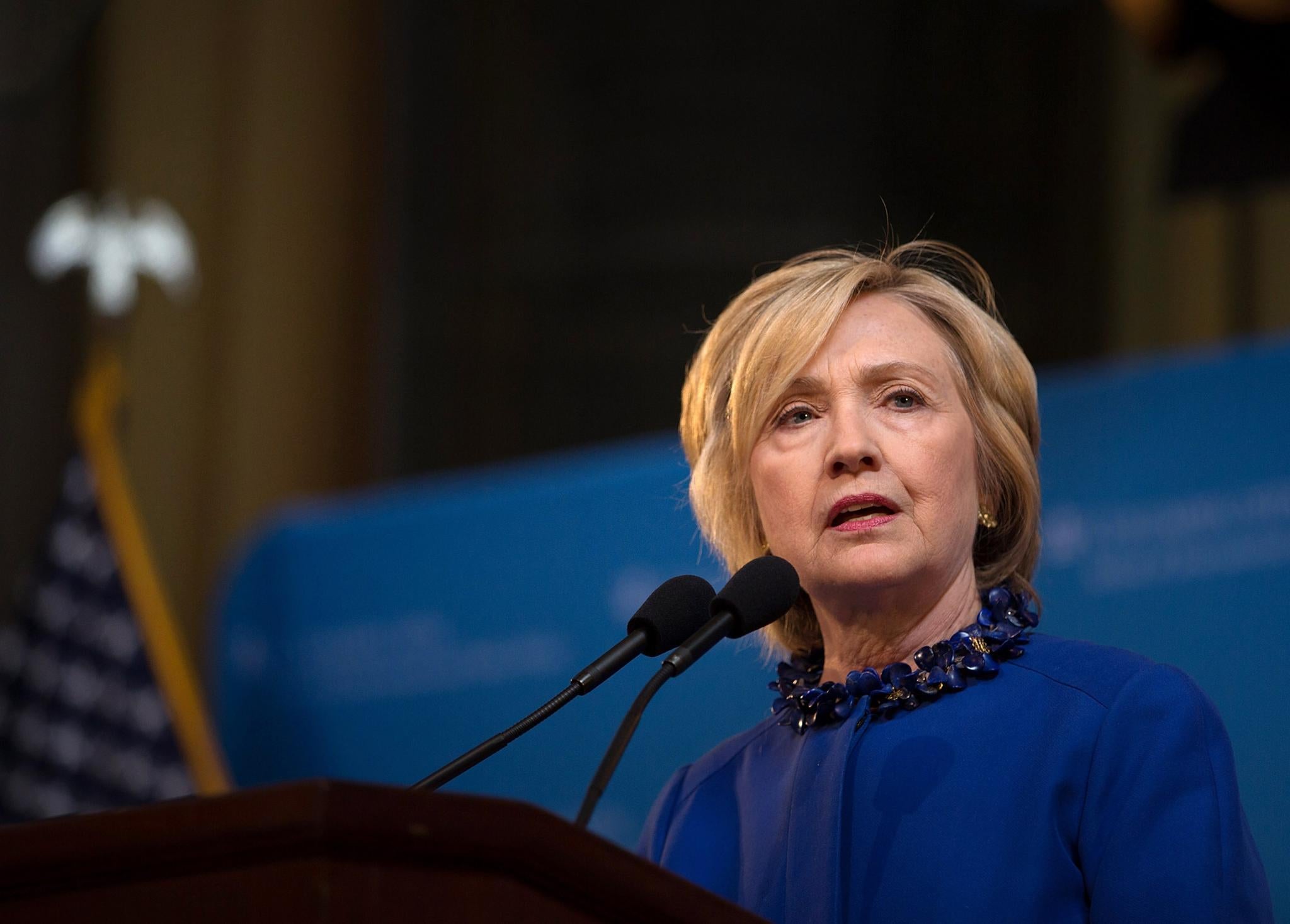
We are less than six months away from the presidential elections, and it’s crucial that Black women’s voices are heard. For the next few weeks, we’ll be taking a quick look at some of the most important issues on the ballot this season to make sure that you understand each candidate’s stand on the issues. This week, it’s all about criminal justice.
Hillary Clinton
Civil rights activists have been raising their eyebrows at Clinton for her participation in the 1994 Crime Bill (reminder: that was the bill that, in an effort to slash the crime rate, toughened prisoners’ sentences, provided funding to prisons and resulted in a dramatic increase of the number of people behind bars). However, the Democratic frontrunner has denounced her ways and expressed regret in supporting the bill.
She has since vowed to abolish the private prison system and fight mass incarceration. She wants to establish reentry programs for former prisoners, keep the federal government out of capital punishment and decrease the mandatory minimum sentence for nonviolent drug offenders.
List of Black Women Supporting Hillary Clinton Grows
She has also been vocal about repairing the trust between police officers and the communities that they serve and ensuring that all law enforcement officials are equipped with body cameras. Clinton has promised to improve the method that the Department of Justice uses to collect policing data, provide federal funding to police precincts who work to increase transparency and address the disparities in punishments for crack and powder cocaine.
Read more here.
Donald Trump
Trump has been uncharacteristically quiet on the issue of criminal justice reform (his website is noticeably lacking his platform on the issue). However, he has periodically made comments that give people a glimpse of where he would stand on the issues.
Earlier this month, he told Chris Matthews that private prisons seem to be more effective, and in 2000, he said that judges are to blame for high recidivism rates, adding that most people oppose reduced sentences because they don’t want “thugs” relocating to their neighborhoods.
Last year, Trump admitted during a Meet the Press interview that police officers shooting African-Americans was a crisis, but he said that we need to give police officers their power back. He went on to say that police must regain control of “this tremendous crime wave that’s hitting the US.”
Read more here.
Bernie Sanders
In August, Sanders unveiled a multi-platform plan that specifically targets racial injustice. He proposed a plan that would restore the 1965 voting rights act, eliminate for-profit prisons, get rid of sentencing disparities for similar crimes and keep employers from inquiring about applicants’ incarceration history.
Sanders has also been outspoken on the Black Lives Matter movement. His campaign website lists the names of 13 unarmed individuals—the majority of whom are Black—who have all died at the hands of police, alludes to Trayvon Martin and the Charleston shooting and lists statistics proving that African-Americans and Latinos are more likely to be abused by police.
To solve the problems, he has proposed demilitarizing all police, working to improve the relations between officers, requiring all police precincts to collect data on their shootings and cracking down on hate groups.
Read more here.
Ted Cruz
Though Cruz hasn’t said much on criminal justice reform, last year, he demanded putting an end to “over criminalization, harsh mandatory minimum sentences and the demise of jury trials.” He was bothered by the current mandatory minimum sentences in place, and he said that something had to be done to prevent individuals from being punished for the same crime multiple times.
What a Donald Trump Presidency Would Mean for Black Women
However, his tone shifts when it comes to talking about the Black Lives Matter movement. Last year, he infamously told ThinkProgress that the Black Lives Matter movement was celebrating the murder of police officers before going on to accuse President Obama of vilifying law enforcement officials.
In November, he said that the Ferguson protests have caused a spike in crime rates because officers are afraid to do their jobs, and just last month, he advocated for a strong police presence in Muslim neighborhoods to prevent individuals from becoming “radicalized.”
Read more here.
John Kasich
During his time as governor of Ohio, Kasich passed two major bills: One that eased the job application process for ex-felons and another that would give some nonviolent offenders the option of rehabilitation rather than prison time. He has also criticized the prison industrial complex for punishing mentally ill individuals rather than getting them the help they need.
In 2014, Kasich found himself in the middle of the policing conversation after 12-year-old Tamir Rice was fatally shot by a Cleveland police officer. Last year, he created a task force aimed at improving and unifying the state’s policing standards as well as diversifying officers. After protests erupted when a grand jury declined to indict the officer who killed Rice, Kasich said that the activists need to be heard.
Read more here.
